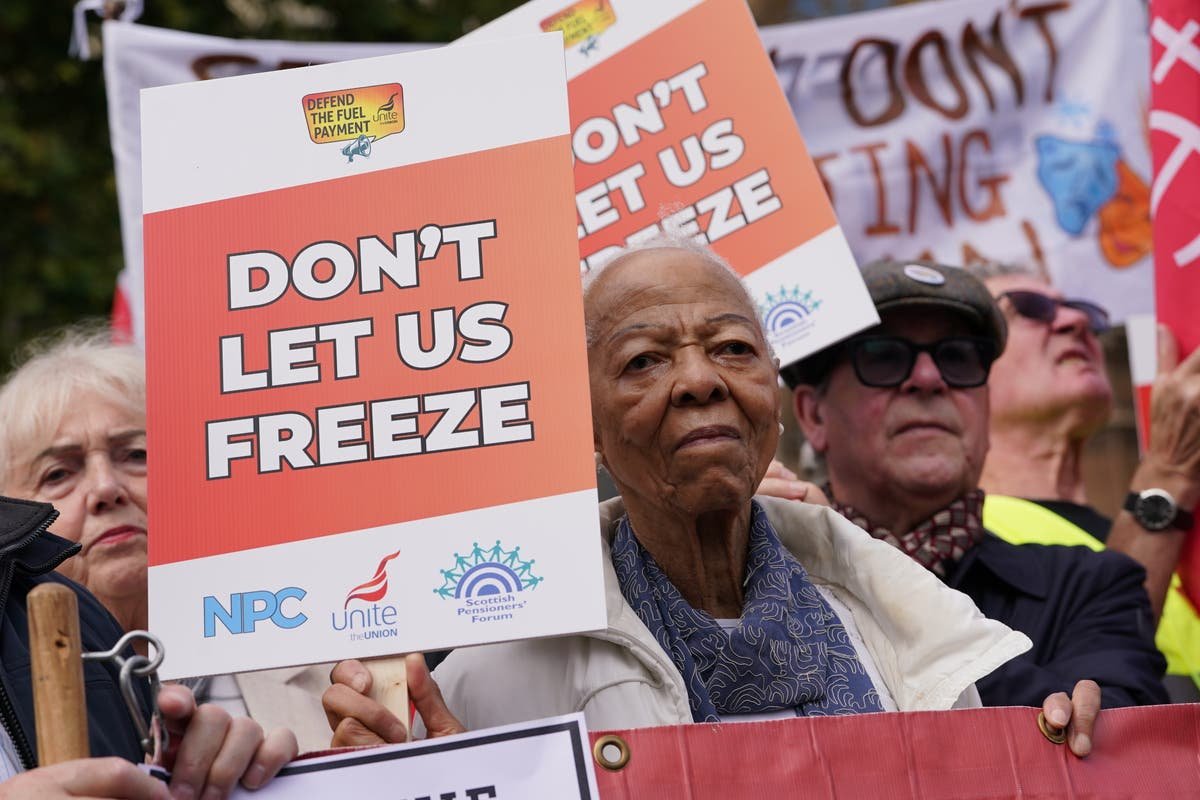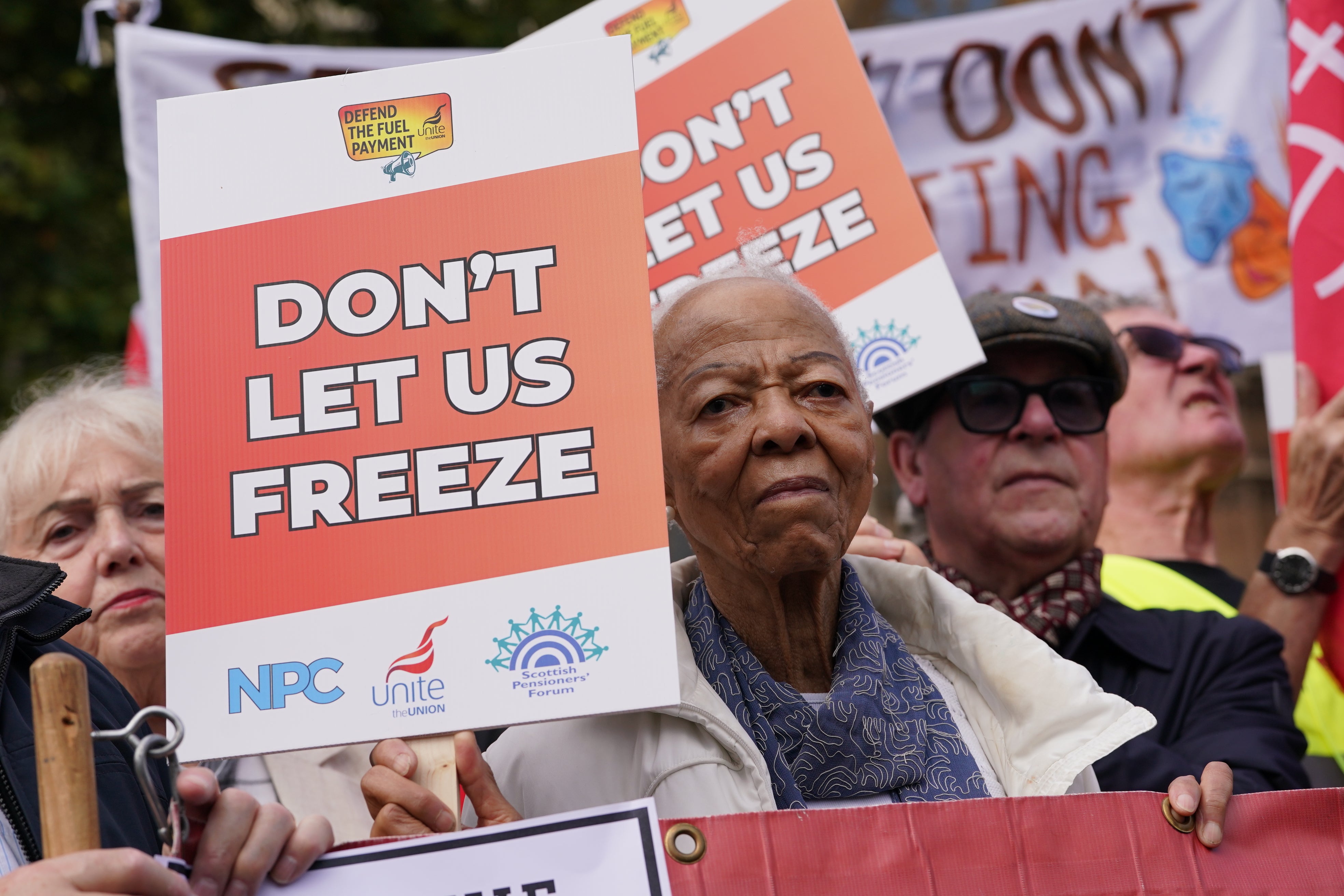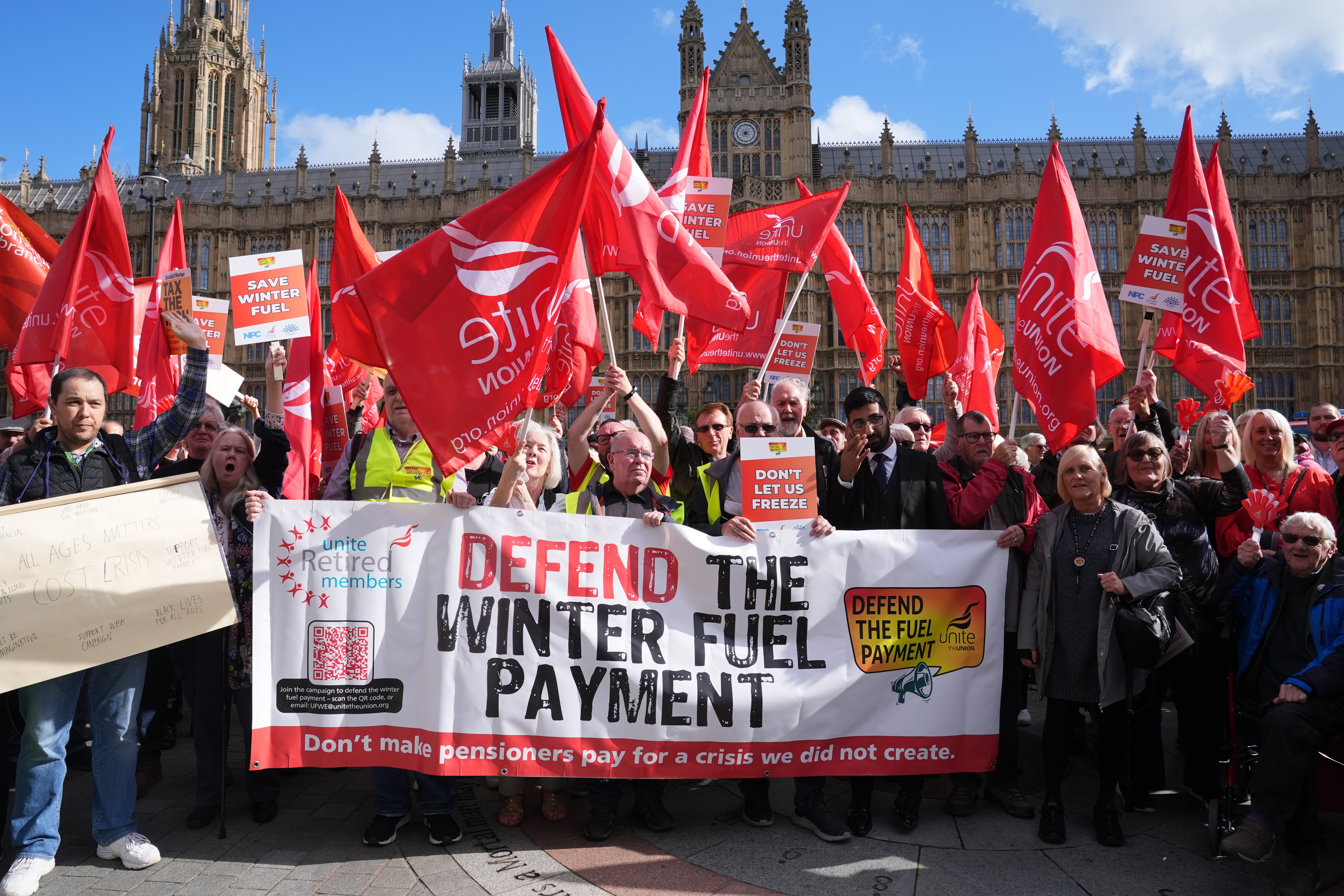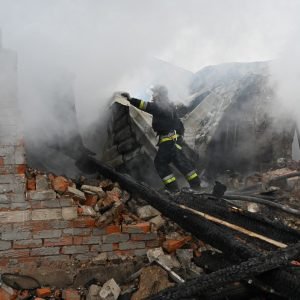
Four in every five pensioners living below or just above the poverty line are set to lose the winter fuel payment, including 1.1 million disabled people, according to new analysis by a leading charity.
New research from Age UK estimates that 10.7 million pensioners will lose their fuel payment this winter, following Chancellor Rachel Reeves’ decision to means test the hand-out.
Of those who will lose out, almost one in four – 23 per cent or 2.46 million people – live in relative poverty or are just above the poverty line, the analysis found.
Under Labour’s plans, only pensioners on certain benefits, such as pension credit, will be able to get help.
People above the state pension age cannot claim Universal Credit and instead are given pension credit, however this is only for single people with a weekly income of below £218.15 a week or £332.95 for a couple.
Charities have warned that millions of pensioners who are vulnerable due to low incomes or disability, but who do not qualify for pension credit, will be left out.
In new figures released on Wednesday, Age UK estimates that 800,000 pensioners who are aged 80 or over, and who are living in poverty or just above the poverty line, will no longer receive the winter fuel payment.

Pensioners defined as living in poverty are those with a disposable household income that is less than 60 per cent of the median income for their area in the UK. Those living just above the poverty line are categorised as having a disposable income between 60 per cent and 70 per cent of the median income.
Age UK estimate that 1.1 million pensioners with a disability, with these low incomes, will miss out on the winter fuel payment, as well as 1 million pensioners who live alone. Many older people who are barely getting by are just above the threshold for pension credit, and therefore no longer qualify for winter fuel payments.
Pensioners have reached out to the charity to detail their worries ahead of winter. Jill, 80, told Age UK: “My husband is terminally ill with cancer, he has a state pension, no work pension and very little savings. I have a very small state pension plus an extremely small work pension.

“I will have to use my own limited savings to keep my husband warm, leaving me in a financial hole when my husband passes.”
John, 86, said: “We will not be able to cope. My wife is disabled and has a severe vascular problem which causes her to feel the cold terribly. Even with the winter fuel payment last year we struggled to meet the gas and electricity monthly bill, so we will not be able to cope now.”
Will you be impacted by the winter fuel cut? Share your experience with holly.bancroft@independent.co.uk
Kathleen, 74, added: “I use the £200 to pay for the energy bill, not luxuries. My husband is seriously ill and during the winter the heating is on constantly. I am an unpaid caregiver on a pension above the threshold for pension credit.”
The charity is urging Ms Reeves to reverse the decision; but failing that to expand the number of people who would qualify for the payments. They want pensioners who are in receipt of housing benefit, council tax support, personal independence allowance, attendance allowance and carers allowance to qualify for winter help.

Paul Taylor, 74, who is in receipt of attendance allowance because of his mobility problems, told The Independent: “I was previously reasonably comfortable, but now I’m going to be reasonably tight with everything. I don’t think [the cut] will affect me too much, but if things get any worse then it will. As a pensioner goes I think I’m probably just managing with what I’ve got without having to spend my savings, but it’s tight. I’m being careful.”
Attendance allowance is a benefit for people over state pension age who need extra help because of illness. Mr Taylor explained that those in receipt of this benefit should receive winter fuel help, saying: “It’s mainly people on attendance allowance who will be home most of the time and who will be having the heating on more.”
The Department for Work and Pensions has been contacted for comment.




